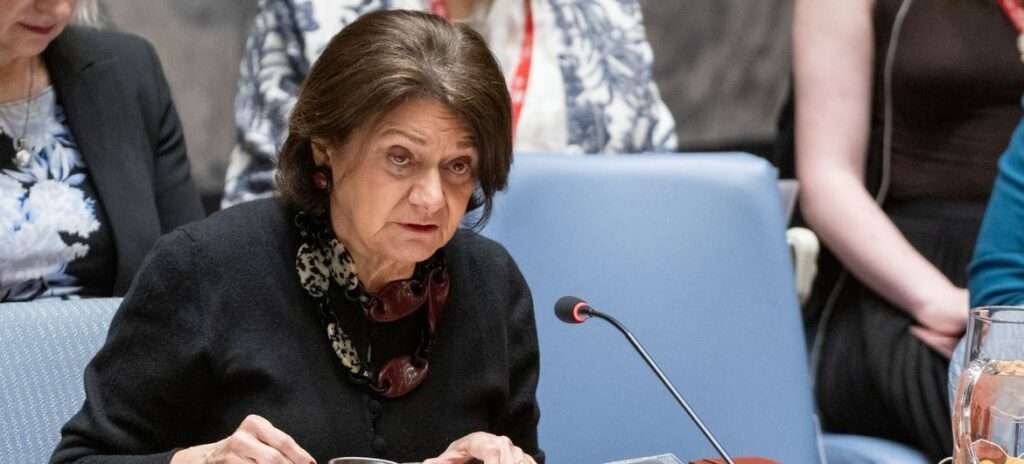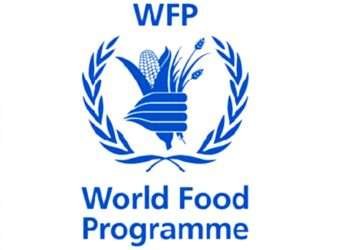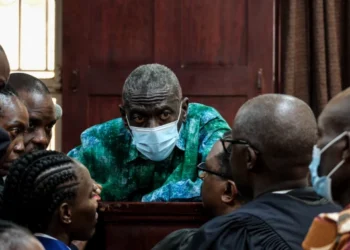The United Nations has issued a warning to countries supporting the warring factions in Sudan, calling their involvement an enabler of mass violence that has claimed over 24,000 lives and displaced millions.
Rosemary DiCarlo, the UN’s political chief, told the Security Council that external assistance has exacerbated the conflict, which began in April 2023 when tensions between military leaders and the Rapid Support Forces (RSF) erupted in Khartoum and spread across the country.
“It is unconscionable,” DiCarlo said, underscoring the severe impact on Sudan’s civilian population. “It is illegal, and it must end.”
Violence Escalates, Civilians Bear the Brunt
The UN reports indicate that attacks by the RSF in recent months, especially in the province of Gezira, have escalated in brutality. These assaults have led to significant casualties and widespread sexual violence.
DiCarlo described these actions as representing “some of the most extreme violence in the last 18 months,” according to various NGOs.
The RSF’s violence isn’t the sole concern. The Sudanese Armed Forces (SAF) have also been implicated in civilian attacks, particularly in Khartoum.
The UN has expressed its deep concern over the escalating conflict, warning that both factions remain determined to fight for dominance, fueled by a steady influx of external support and weaponry.
DiCarlo highlighted that as the rainy season concludes, both sides are ramping up military recruitment and intensifying their campaigns. “This is possible thanks to considerable external support, including a steady flow of weapons into the country,” she noted.
Foreign Support Under Scrutiny
The external backers of Sudan’s combatants are a growing point of contention. While DiCarlo refrained from naming specific countries, the UN has previously documented foreign involvement. Sudan’s government has accused the United Arab Emirates of supplying arms to the RSF, a claim that the UAE denies.
Reports have also linked the RSF to Russia’s Wagner Group, alongside support from Arab-aligned communities and supply routes extending through Chad, Libya, and South Sudan.
The Sudanese military, on the other hand, is known to have ties with Egypt and its President, Abdel-Fattah el-Sissi. Furthermore, Sudan’s recent diplomatic engagements with Iran have fueled speculation about drone purchases to bolster government forces.
DiCarlo emphasized that these alliances bear a responsibility to press for peace. “Both sides need to realize that a military victory will only lead to prolonged suffering and chaos,” she urged.

Dire Humanitarian Toll and Displacement
The ongoing violence has created a dire humanitarian situation, displacing over 11 million people since April 2023. Of these, around 3 million have sought refuge in neighboring countries. Last month alone, 58,000 residents fled the Darfur region to Chad, which now hosts more than 710,000 refugees.
Ramesh Rajasingham, the UN humanitarian coordination director, described “shocking atrocities” in Gezira and warned that fighting in North and West Darfur continues to force more civilians to flee.
El Fasher, the last major city in North Darfur not under RSF control, has become a flashpoint. Nearby, the Zamzam displacement camp has faced catastrophic food shortages, with recent assessments revealing that 34% of children are malnourished, 10% of whom suffer from severe malnutrition.
“We are seeing alarming signs that food insecurity is spreading,” Rajasingham said, pointing to reports from South Kordofan as particularly concerning. He stressed the need for urgent global intervention to prevent further deterioration.
Renewed Calls for Dialogue and Protection
The UN is pushing for renewed peace efforts as it seeks to mediate between the two warring factions.
DiCarlo announced that Ramtane Lamamra, the UN special envoy for Sudan, is planning a new round of “proximity talks” to focus on civilian protection and possibly reinvigorate stalled negotiations. While the RSF participated in talks held in Geneva in July, the Sudanese military boycotted, stymying progress.
Lamamra is set to visit Sudan and neighboring nations in the coming weeks to engage with key players to bring both sides back to the negotiating table.
“The situation is beyond critical,” Rajasingham said, urging immediate international action to end the violence and address the humanitarian crisis.
READ ALSO: Misinformation, Disinformation Threatens Ghana’s December 7 Elections























